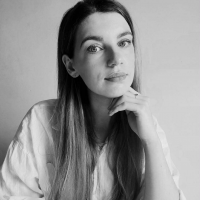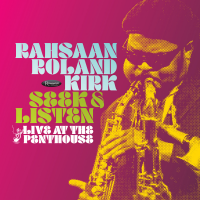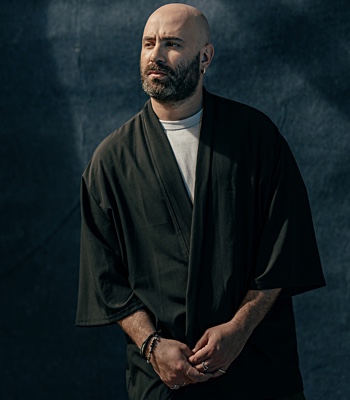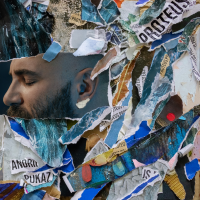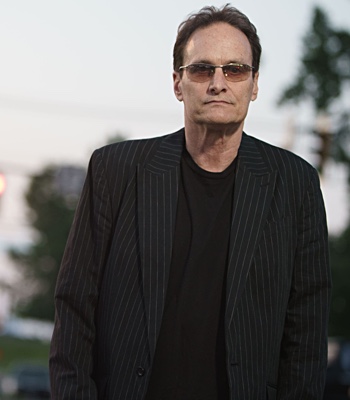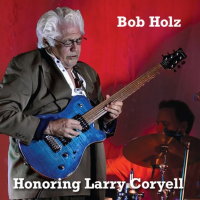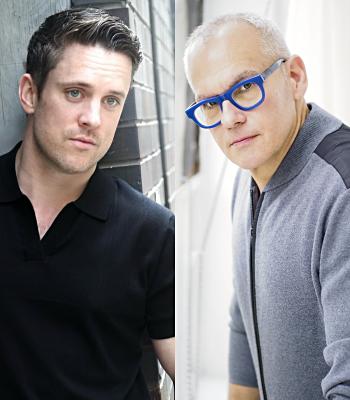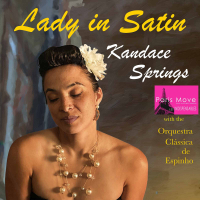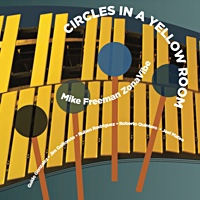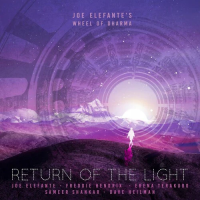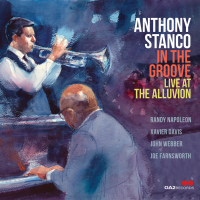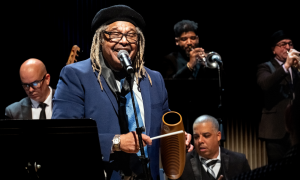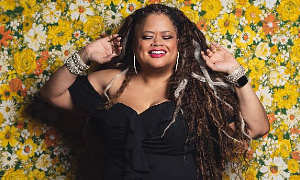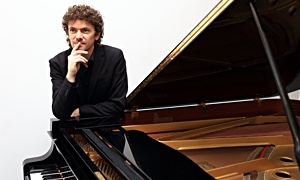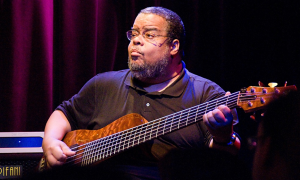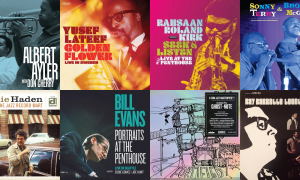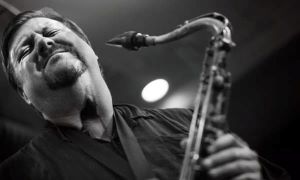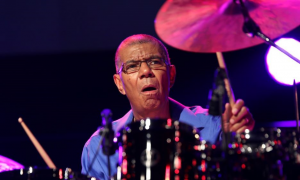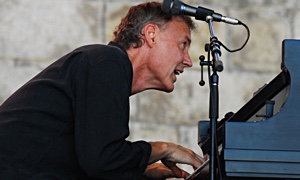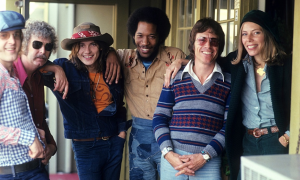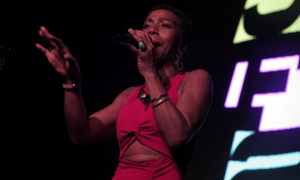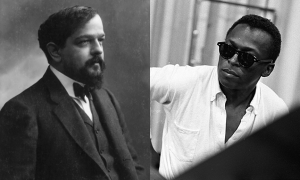Home » Jazz Articles » Live Review » Vilnius Jazz Festival 2025: Improvisation Without Compromise
Vilnius Jazz Festival 2025: Improvisation Without Compromise
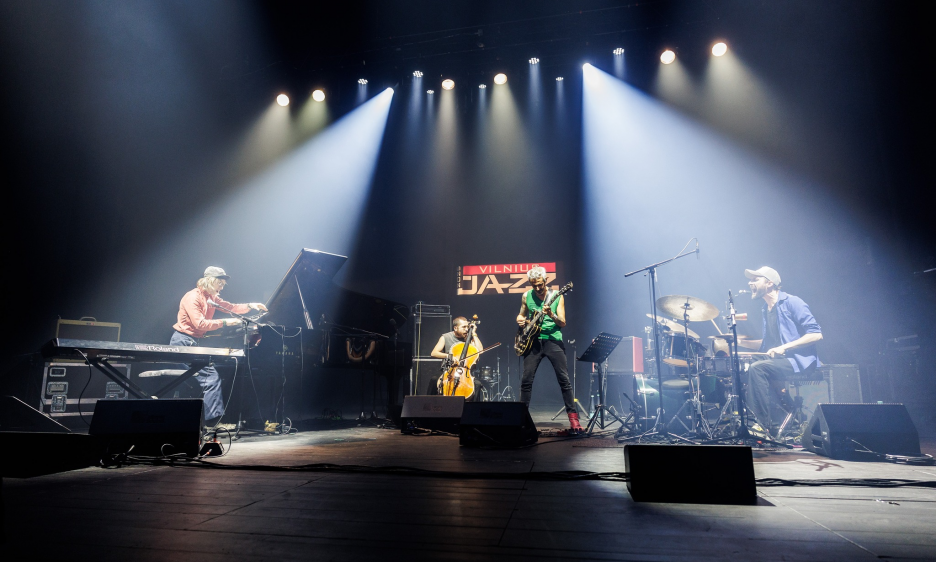
Courtesy Vygintas Skaraitis
Vilnius Jazz articulated a distinct position: improvised music presented without compromise, without ornament, and without the need to explain itself.
Old Theatre of Vilnius
Vilnius, Lithuania
October 13-21, 2025
(This report covers five days from October 15-19)
The thirty-eighth edition of the Vilnius Jazz Festival opened with the assurance of an event that has spent decades refining both its aesthetic and its purpose. As one of Vilnius's most enduring festivals—shaped for almost four decades by producer Antanas Gustys—it continues to articulate a distinctive philosophy at a moment when many European festivals drift toward efficiency, spectacle, or thematic packaging. Vilnius Jazz moves by other criteria. It offers a structure in which films, conversations, and concerts communicate with one another; where emerging artists inhabit the same conceptual space as established figures; and where the coherence of the festival depends less on variety than on clarity. The program, dense on paper, was balanced in practice by the measured alternation of formats. Instead of acceleration, this yielded space: a sequence of listening conditions, each sharpening the next.
This interplay—reflection, contextualisation, emergence, articulation—resonated with the present cultural moment, suggesting that improvisation is not simply a category of music but a way of approaching contemporary experience. What distinguishes Vilnius Jazz is not only its programming but the disposition that guides it. In a European scene increasingly shaped by market logic, where festivals broaden their reach through accessible hybrids and decorative eclecticism, Vilnius Jazz proceeds from a different premise: that improvised music requires clarity of conditions rather than polish, and rigour rather than expansion. Its independence is not a stylistic pose but an outcome of its consistency, its refusal of flattening gestures, and its belief that attentiveness—on both sides of the stage—is a meaningful cultural act.
Vilnius Jazz Screen Beats (October 13, 14, 20, 21), the cinematic frame that opened and closed this year's edition, set this disposition in motion. The focus on filmmaker Robert Mugge, whose documentaries treat filming as a form of musical attention rather than documentation, reoriented the festival's sense of history: not as archive, but as a practice shaped by the decisions of those who translate sound into image. Mugge's work, together with Oliver Murray's portrait of Ronnie Scott's, foregrounded the question of mediation—how improvised music becomes visible, how it is remembered, and how film can either clarify or distort its inner logic. A third screening, Blues Divas (2005), presented by Morgan Freeman, added weight by foregrounding female authorship in blues and jazz, pointing toward an ongoing recalibration of the tradition's centre of gravity. In Lithuania, where jazz has long circulated through a dual economy of broadcasting and live performance, this attention to mediation carried particular resonance: the films exposed the extent to which the country's jazz history has been shaped not only by performers but by those who observed, recorded, and framed them.
The Vilnius Jazz Music Talks (October 15, 17) continued this line of inquiry by turning toward the individuals and institutions that have shaped Lithuanian jazz. The session dedicated to Petras Savickis, "Petras Savickis: Directing Jazz," revealed the television director's profound influence on how the music has been perceived in Lithuania for nearly forty years. Savickis was not simply an intermediary; he was an interpretive agent whose decisions—framing, pacing, visual structure—preserved rather than simplified the complexity of improvised music under the constraints of broadcast logic. His work, including excerpts from Voicescapes. Homage to M. K. Čiurlionis, demonstrated how a visual mind can follow musical reasoning without intruding upon it. The session gave voice to a truth long understood within the Lithuanian scene but rarely articulated publicly: the development of jazz here has depended on a network of listeners and documentarians whose attentiveness shaped the music's afterlife with as much care as the musicians themselves.
Philippe Ochem's lecture, "Hey French Jazz! Do You Have an Accent?," shifted the Talks into a comparative mode. Beginning with an overview of contemporary French jazz—its aesthetic tendencies, its emerging voices, its changing infrastructures—Ochem traced the systems of residency, institutional support, and long-form collaboration that sustain this ecosystem. His emphasis fell not on policy but on the way sustained support enables sustained inquiry: how artists can take risks when the conditions around them are stable. In the context of this year's programme, which featured a notable presence of French musicians, his perspective provided a useful counterpoint to the Lithuanian experience, suggesting affinities not of style but of ethos.
The final Talk, "Everything Began with an Open Window," returned attention to Vilnius itself. It revisited Langas, the early-1990s club that operated as a rare space of creative autonomy during a moment when cultural infrastructures had yet to catch up with political change. Langas was interdisciplinary by necessity, porous by temperament; it foreshadowed the sensibility that Vilnius Jazz would later refine. The discussion positioned the festival not as an isolated institution but as the outcome of a longer cultural trajectory in which improvisation emerged not only from musical decisions but from structural conditions, informal networks, and shared spaces of experimentation.
If the films and discussions created a frame, the main program formed the centre of the festival—the point at which ideas were not articulated but enacted. The evening concerts did not present a contrast of unrelated propositions; they shared an underlying sensibility while maintaining distinct characters. Each night advanced the same principles through different means, allowing the program to cohere without uniformity and to vary without diluting its focus.
October 15
Valentin Ceccaldi's Bonbon Flamme; The Improdimensija Orchestra
The festival opened with a night that set its orientation with unusual clarity. Valentin Ceccaldi's Bonbon Flamme approached instability not as interruption but as a method. Roles shifted, rhythmic responsibilities migrated, textures accumulated and dispersed; lines bent, fragmented, and reassembled mid-gesture. The volatility was not gestural excess but a test of collective intuition- -how far the ensemble could stretch without losing center. Friction, speed, and a purposeful roughness acted as structuring forces, and the performance suggested that instability, when handled with precision, functions not as a break but as an operating principle. It was a fitting opening for a program that, this year, paid particular attention to French improvised music and the currents that have flowed between Lithuania and France in recent years.The Improdimensija Orchestra with Liudas Mockūnas, joined by Marc Ducret, extended this inquiry across a larger formation. Known for a raw and sometimes unruly energy, the ensemble appeared here in a state of striking equilibrium. Ducret's sharply defined gestures and Mockūnas's focused intensity moved through the ensemble texture with clarity, creating a performance that felt both dense and finely articulated. Rather than producing sheer mass, the orchestra behaved as a responsive organism capable of rapid internal reconfiguration. Complexity, when grounded in intent, became not an obstacle but a means of articulation.
October 16
Dominique Pifarély & Francois Couturier; Irreversible Entanglements
The second evening shifted the festival toward a different register of precision. Dominique Pifarély and Francois Couturier, returning to the duo format after nearly thirty years, performed pieces from their album Preludes and Songs (ECM Records, 2025). They did not treat the performance as a reunion but as a renewed encounter, beginning from the divergent artistic paths each had travelled in the intervening decades. Their interplay operated with quiet intensity: a tensile violin line meeting a piano language constructed from contour, resonance, and exact pacing. Their selection of works—original compositions alongside music by Duke Ellington, George and Ira Gershwin,J.J. Johnson, and Jacques Brel—served less as homage than as material for real-time re-examination. What emerged was a form of clarity that did not flatten complexity but rendered it transparent.Irreversible Entanglements expanded the evening's focus by answering with a different kind of precision. Presenting material from Protect Your Light (Impulse! Records, 2023), the ensemble demonstrated why they have become one of the most closely watched groups in contemporary improvised music. Their momentum arose from a rhythm section capable of generating volatility without sacrificing definition; Aquiles Navarro and Keir Neuringer supplied lines that flared, contracted, and redirected with deliberation. Moor Mother's presence gave the performance its centre of gravity: a voice that worked not as commentary but as structural axis, carrying historical memory, political urgency, and poetic compression. The group did not fuse styles so much as maintain multiple energies in active relation, allowing narrative, structure, and improvisation to converge without softening one another.
October 17
Wadada Leo Smith & Sylvie Courvoisier; Vilnius Triptych—Conversations with Light
The third evening offered one of the festival's most absorbing performances. Wadada Leo Smith and Sylvie Courvoisier approached the duo setting with concentrated restraint, treating every gesture as a structural event. Smith's centered tone provided a stabilizing axis, while Courvoisier shifted between lucidity and rupture, opening harmonic paths only to close them again with sudden redirects. Their exchange resembled an iterative shaping of form rather than conversation, advancing through decisions weighed in real time rather than expressive expansion. It was a performance in which the smallest details accumulated weight.The evening continued with Vilnius Triptych—Conversations with Light, a three-part project created specifically for the festival as a tribute to three cultural figures essential to Vilnius: Bronius Kutavičius, Rolandas Rastauskas, and Vladimir Chekasin. Integrating music with video projections by Aurelija Maknytė, Linas Liandzbergis, and Artūras Valiauga, as well as a live stage broadcast shaped by Rokas Valiauga, the triptych treated lineage as an active, ongoing exchange rather than inheritance. The section devoted to Kutavičius, performed by his son Tomas and incorporating fragments of the composer's work, unfolded as a quiet conversation across generations—reverent yet free of sentimentality. The tribute to Rastauskas paired Arkady Gotesman with Pijus Opera, whose delivery captured the writer's distinctive mixture of rhythmic flexibility and theatrical intuition. The segment dedicated to Chekasin, led by Vytautas Labutis, explored the tension between turbulence and structure that defined Chekasin's pedagogy and performance practice: chaos controlled from within, order that revealed itself only in retrospect. Together, the triptych articulated an understanding of influence as something continually reinterpreted rather than preserved.
October 18
William Parker's Heart Trio; Llaki Trio
The fourth evening turned the programme toward grounded physicality. William Parker's Heart Trio performed with force shaped from within rather than imposed through external pressure. Parker's bass functioned not as accompaniment but as a steering instrument, guiding shifts in density, direction, and momentum. The trio moved as if discovering their trajectory from moment to moment—a music that seemed to generate its own logic as it unfolded.In contrast yet in alignment, the Llaki Trio, joined by Flavia Huarachi and Luka Zabric, explored multiplicity without collapsing into fusion. Andean rhythmic sensibility, European improvisational thought, and Baltic austerity appeared as parallel strata. Each layer retained its characteristics, yet the resulting performance felt integrated through attention rather than assimilation. The trio demonstrated how distinct musical languages can cohabit a single space without erasing one another.
October 19
Vilnius Jazz Young Power; Julien Desprez' Abacaxi; The Young Mothers
The final day began with the twentieth edition of Vilnius Jazz Young Power, a competition that has become a central component of Lithuania's improvised music ecosystem. Placing it within the main programme rather than at the margins reinforced the festival's premise that emerging musicians are not peripheral but integral to its ongoing perspective. After two decades, Young Power functions less as a platform than as a mechanism through which the field continually interrogates its criteria. This year's finalists brought divergent approaches, yet their performances shared clarity of intention and structural awareness. The winning duo, Briedinė erkė (Paula Bagotyriūtė -piano, Deividas Skridaila -guitar), offered a set defined by economy, patient development, and attentive interplay —qualities closely aligned with the festival's broader ethos. The contest was followed by a guest appearance from last year's Grand Prix laureate, Dominykas Norkus, whose project Filotopija provided a reminder of how the competition's outcomes continue to reverberate beyond a single edition.The concluding concerts brought the festival's boldest statements. Julien Desprez' Abacaxi has become one of the most distinctive performance units in European experimental music, and their Vilnius appearance confirmed this reputation. Desprez's practice dissolves the traditional identity of the electric guitar, transforming it into an instrument of gesture, motion, and shifting timbre. The performance unfolded through a choreography of hands, feet, cables, pedals, and flashes of light; in this environment, movement became structural information rather than theatrical addition. Bassist Jean-Francois Riffaud and drummer Francesco Pastacaldi matched Desprez's volatility with meticulous responsiveness. The trio's sound veered between noise-sculptural density, sudden clarity, sharp rhythmic arcs, and abrupt pockets of silence. The result was a tightly constructed multisensory form of improvisation that refused spectacle even as it embraced a heightened physical presence.
The Young Mothers closed the festival with a performance grounded in constant mutation. Formed in Austin by bassist Ingebrigt Håker Flaten, the band has long resisted stylistic containment, moving fluidly between free jazz, punk, hip-hop, and noise. Their Vilnius set advanced as a series of rapid transformations: ideas surfaced, cracked open, recombined, and accelerated, carrying traces of multiple traditions without settling into any single one. JJawwaad Taylor's trumpet and vocal presence cut through the ensemble with incisive clarity; Jason Jackson's saxophone shifted between bursts of angular intensity and elongated, rough-edged lines; Jonathan Horne's guitar threaded the texture with gestures that oscillated between fragmentation and sudden coherence. Drummers Stefan Gonzalez and Frank Rosaly propelled the music with a pulse that bent, collided, and reshaped itself continuously. Rather than blending influences, the group treated them as energies in immediate circulation. The performance did not summarise the festival; it intensified it, affirming that artistic risk—rather than polish—remains the principle that defines Vilnius Jazz.
Returning to Screen Beats after the final concerts closed the festival's loop, reinforcing a central idea: that improvisation in Vilnius is encountered not only as event but as interpretation, shaped by both performance and the reflections that surround it.
Across the festival days, the 2025 edition articulated a position that remains distinct within European improvised music. While many festivals expand through accessible hybrids or market-oriented programming, Vilnius concentrates on artists whose practices are self-defined and uncompromising. Its coherence arises not from thematic packaging but from the seriousness of the work it presents. This is not a festival organised around spectacle or variety; it operates through trust —trust in the music, in the audience's attentiveness, and in the clarity of its own priorities.
The films, talks, and reflective components provided the framework, but the main programme delivered the festival's defining argument. It articulated a conception of improvisation as a discipline rooted in attention, structural awareness, and long-term inquiry. The 2025 edition offered more than a sequence of concerts: it proposed a way of thinking about the conditions under which the music thrives. It showed that improvisation develops not through dilution or stylistic accommodation but through focus, depth, and commitment. This year's photographic exhibition, "Jazz from the Front Row," reinforced that perspective visually: a curated selection of images by Vytautas Suslavičius, Daiva Klovienė, Sigitas Kondratas, Vilma Dobilaitė, Vygintas Skaraitis, and Greta Skaraitienė captured the festival's immediacy and atmosphere, extending its sense of attention beyond the stage.
As every year, the festival honoured a major contribution to Lithuanian jazz. The 2025 award for lifetime service to the Lithuanian jazz scene was presented to saxophonist and educator Vytautas Labutis—a musician whose influence, teaching, and artistic insight have shaped several generations of the country's improvisers.
Vilnius Jazz 2025 confirmed once again that a festival can define itself not by scale but by criteria, and that independence—maintained quietly and consistently— can be one of the strongest artistic positions of all.
Tags
PREVIOUS / NEXT
Support All About Jazz
 All About Jazz has been a pillar of jazz since 1995, championing it as an art form and, more importantly, supporting the musicians who make it. Our enduring commitment has made "AAJ" one of the most culturally important websites of its kind, read by hundreds of thousands of fans, musicians and industry figures every month.
All About Jazz has been a pillar of jazz since 1995, championing it as an art form and, more importantly, supporting the musicians who make it. Our enduring commitment has made "AAJ" one of the most culturally important websites of its kind, read by hundreds of thousands of fans, musicians and industry figures every month.

